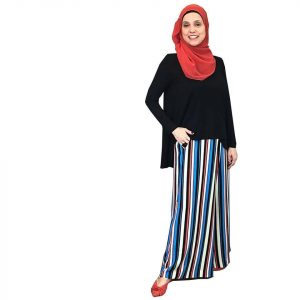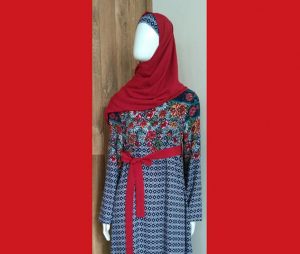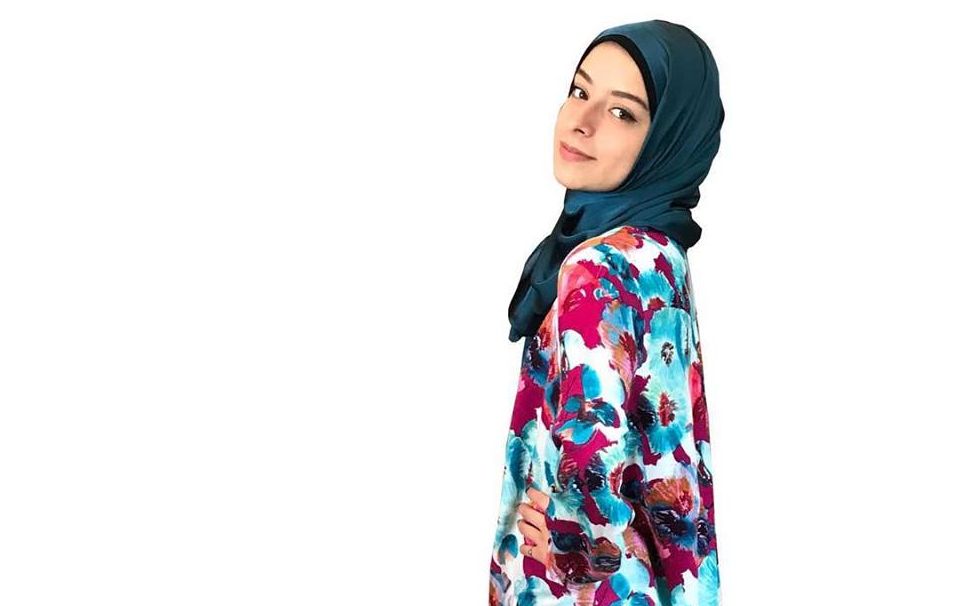São Paulo – Islamic women who live in Brazil don’t wear tight-fitting denim pants, short-sleeved T shirts of above-the-knee skirts found in malls all over the country. Most of them dress in long cloaks (abayas), with scarves (hijabs) wrapped around their heads. These are hard items to find at conventional outlets, but they’re being made by a group of designers whose primary promotion and sales front is the internet.

These Islamic fashion entrepreneurs in Brazil include Sheila Sotero, who designs and makes abayas, hijabs and tunics out of Betim, Minas Gerais, and Karla Silva, an Islamic scarf designer and seamstress in Taubaté, São Paulo. Also in São Paulo, partners Beatriz Kehdy and Alessandra Melo make clothes that are Islam-friendly, yet modern, conventional-like and appropriate for everyday wear. And major Brazilian brand Maison Alexandrine incorporated Islamic item sinto its collection – a rare thing on this market.
Since brick-and-mortar stores in Brazil are short in number, Muslim women need to make do. Those who don’t have a store nearby will buy online, or from acquaintances who bring product from Islamic countries – or else they will improvise. “Muslim women will adapt their clothes. We’ll buy short blouses and wear them with skirts, or buy mini-dresses and wear them like tunics with pants,” says Soha Chabrawi, from the Halal Quality Guarantee Sector at Fambras Halal, the halal certifier division of the Federation of Muslim Associations in Brazil.
But work is being done to change that. Beatriz, an architect, and Alessandra, a modelist, launched the iCovered brand a little over a year ago. They are both ‘reverted’ (which is how Muslims term conversion) and used to have a hard time finding discreet, yet modern clothing to wear. “The idea came up of working on something for Muslim women. Discreet, but modern clothes with style and charm,” says Beatriz.
iCovered doesn’t carry abayas or burkas. The brand makes Muslim-friendly everyday items like skirts, loose-fitting pants, tunics, dresses and scarves. “We design with Brazilian Muslim women in mind, but our clothes are wearable by all demographics,” says Beatriz. Both the architect and the modelist handle the designs. Most of the seaming is done by third-party workers. Beatriz explains that the brand values quality fabrics and finishes, and that the items are exclusive.


Items by iCovered are sold at the Carol Martini collaborative space, on São Paulo’s Benedito Calixto Square. They’re also available online, mostly on Instagram, WhatsApp and Facebook – which is where the bulk of sales happen, according to Beatriz. Product get shipped across Brazil, to places across the state of São Paulo and the city of Curitiba. “The market is growing bit by bit,” she says. iCovered does not export yet, but plans are in place to do so.
In Taubaté, Karla Silva is another Islam revert working on an Islamic fashion project. A Muslim since her teens, she started out by making her own scarves. “The ones that’d come from Lebanon were too expensive.” The daughter of a seamstress, she dropped out of a sewing course and then taught herself the trade. Karla began making hijabs to sell after fellow Muslims saw what she was wearing and placed orders.
Karla will buy fabric for her hijabs in Brazil and abroad, wholesale and retail. Her focus is on getting unique items. Leopard prints, embroidery and lace are mainstays. She’ll sell the items to Islamic community – mostly Brazilian reverts – and online, through WhatsApp, Mercado Livre and Facebook. Karla, who has gone on the Hajj (the pilgrimage to the holy city of Mecca), has plans of expanding her business. She also intends to find a brand name: her product is eponymous right now.

Sheila Sotero works out of her studio in Betim. She sells her items locally and online, but is considering opening a store in Belo Horizonte. Her Ssotero brand incorporates the latest fashion trends into Islamic attire, using the latest cry in fabrics and colors, as well as embroidery and add-ons to her abayas, tunics and hijabs. “They want clothes that are modern, while retaining the essence,” explains Sheila, who takes care not to use transparencies or tight-fitting designs.
Sheila is the daughter of a designer/modelist. Even as a child she’d copy her mother’s work. Her mother would often put Sheila’s ideas on paper to use them in her work. Sheila has won design contests, her work has been in parades, and she has close to 3,000 followers on social media. Even though she also makes regular clothing, she intends to lean heavily into Islamic fashion. She designs and makes her clothes with help from seamstresses.
The maison of caftans
At the Maison Alexandrine shop, a villa in São Paulo’s high-end shopping district Jardim Paulista, abayas sit next to ‘regular’ clothing items. Brand owner and designer Alexandra Fructuoso explains that they’re a small part of her business: sales of caftans (which is how she calls abayas) are usually two-a-month. “But we always carry a variety of styles – at least six different models – and, of course, we can adapt the color and flashiness to suit the client’s tastes,” says Alexandra.

The new abaya collection from Maison is colorful, with texturized fabrics. They match the women’s liberation going on in Islamic countries right now, according to Alexandra. “That is why I decided to go for a more joyful line which highlights the fantasy side of fabrics, combining that with the occasional tighter-waist model to be worn with a belt,” she says.
The owner of Maison Alexandrine explains that her plan from the get-go was for her work to be sold in the Middle East, among other places. “Especially Saudi Arabia, whose people I consider very educated, well-travelled and involved in all things fashion and sophistication,” she says. She found ways to sell to Arab markets, and started making abayas with that in mind. Last year saw the brand join the first Arab Fashion Week in Riyadh, Saudi Arabia.
Alexandra points out that the abaya is a typical and traditional garment, but that Muslim women wear other types of clothing, such as party-wear and prêt-à-porter, under the abaya. “Which makes our brand 100% perfect for more elegant and fashionable women,” she says.
In addition to offering different apparel to Muslim women, Maison Alexandrine sells Muslim fashion to non-Muslim women. “Abayas are also caftans that make women elegant and charming in summertime. It’s an often-used piece that, nowadays, with the modernity in the Middle East, fits perfectly in the day-to-day. After all, the world is a global village,” says Alexandra. According to her, the pieces can be worn in resorts, beaches and yachts, with a swimsuit or a bikini. “And even in a more casual party, when we designed the embroidery caftan that has the shine that a significant number of women like,” she says.
An option
The type of clothing worn by Muslim women in Brazil vary greatly. There are women that wear long dresses and scarfs every day to those that simply wear more discrete clothes, that don’t show any curves. “It is in the Qur’an that women should dress in a discrete, proper way and hide the adornments. But this can not be imposed on to the women, with she being free to decide when and how to begin wearing the Islamic garments,” says Muslim Soha Chabrawi. Muslim women wear the traditional garments inside the mosques. “The mosque is God’s house and has to be respected. This means wearing Islamic garments inside the mosque,” she says.
Soha Chabrawi says that she knows only one store in São Paulo that has its own production and sells Islamic garments for women. She says that many people bring the pieces from Lebanon, Egypt, Turkey, Syria and other Muslim countries to Brazil and sell them at their houses, mosques, meetings and, more recently, online.
Contacts:
iCovered – Beatriz Kehdy and Alessandra Melo
Sales at Carol Martini collaborative store
Praça Benedito Calixto, 165 – Jardim Paulista -São Paulo – SP
Phone 55 11 97651 5522
Email: icoveredstyle@gmail.com
Facebook
Instagram
Karla Silva
Taubaté – São Paulo
Phone: 55 12 988898395
Facebook
Ssotero – Sheila Sotero
Betim – Minas Gerais
Phone: 55 31 986727912
Facebook
Maison Alexandrine
R. Luís Machado Pedrosa, 59 – Jardim Paulista, São Paulo – SP
Phone: 55 11 28289733
Website
Facebook
Translated by Gabriel Pomerancblum and Sérgio Kakitani




